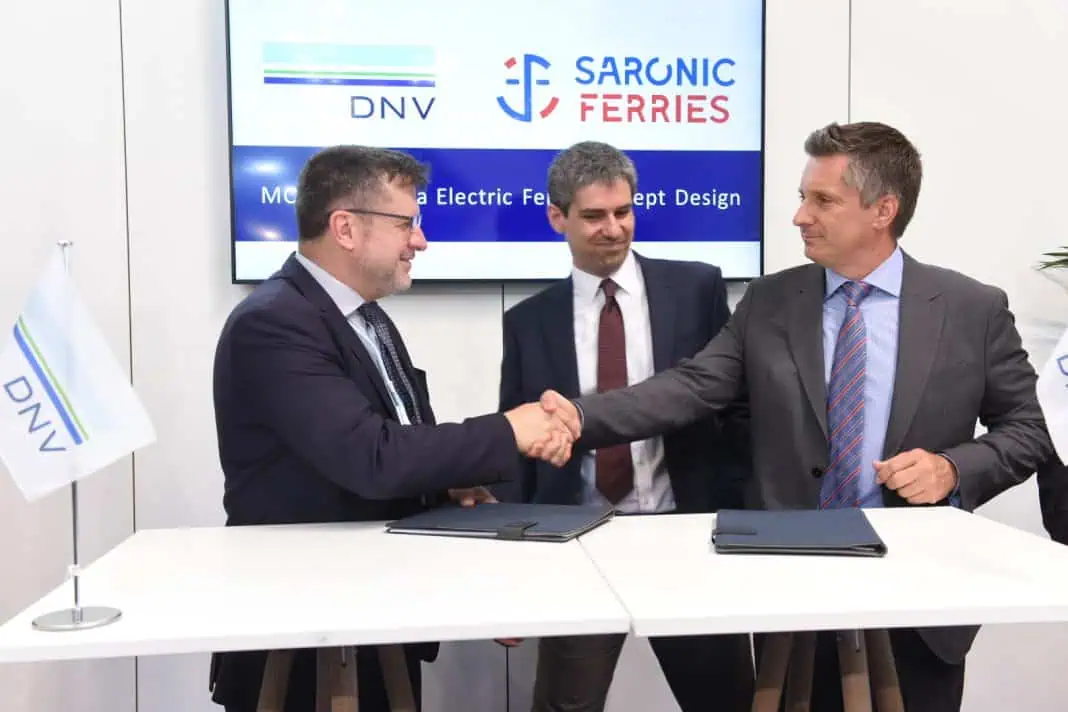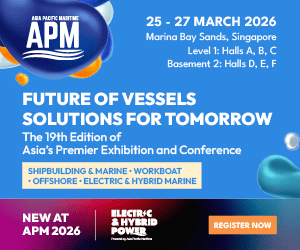At the Posidonia 2022 trade fair, classification society DNV signed a memorandum of understanding (MOU) with Saronic Ferries designed to enable the development of an electric ferry for local deployment in Greece. The collaboration is targeted towards a fully electric concept for deployment on short sea passenger routes in the Argosaronikos area.
The use of all-electric or hybrid vessels in the short sea ferry segment has surged in recent years as the benefits of the technology has been demonstrated in pilots and full-scale deployments. For ferries on fixed routes in particular, electric technology offers significant benefits – eliminating onboard emissions to air, reducing noise and vibration, and providing compliance with increasingly strict regulations in operation and in ports.
“We operate the largest fleet in the Saronic islands which are located only a few miles away from the port of Piraeus, the largest port of Greece, where decarbonization will matter most,” said Joseph Lefakis, partner of Saronic Ferries. “Our goal is to partner with forward-thinking stakeholders, such as DNV and materialize the first fully-electric ferry in Greece, for the Saronic islands.”
“Our mission is to operate a purely emissions-free fleet by 2040 to all our destinations,” added George Papaioannides, partner of Saronic Ferries. “We are taking a step towards a cleaner world and we envision our operation in the Saronic Islands to be the inspiration for others to initiate more green fleet renewal projects in Greece.”
“We have real potential for decarbonization in local ferries in Greece,” said Ioannis Chiotopoulos, SVP, Regional Manager South East Europe, Middle East & Africa, at DNV Maritime. “Ferries are at the heart of tourism through our islands, and as regulations tighten and the public demands more sustainable ways to enjoy travel, full-electric ferries offer forward looking owners the opportunity to contribute to the green wave that is sweeping across shipping. We are extremely pleased to be working with Saronic Ferries on these first steps, demonstrating how local companies can take the initiative on decarbonization and use new technologies for a cleaner future.”
DNV has been a “first mover” on batteries, establishing the first industry rules for battery propulsion, and working with many customers to enable efficient and successful transitions to electric propulsion. DNV has continued to develop a network of experts in Norway and around the world with extensive experience in batteries, battery control systems, which can be drawn on for the local market through the Piraeus office. In addition, as the initiator and lead of the Norwegian Green Shipping Programme, DNV has been working for many years on bringing together maritime stakeholders to escalate the deployment of green vessels, most notably the country’s fleet of short sea ferries.
Greece also has a great deal of potential to power electric ferries with renewable energy. The available resource in terms of offshore wind and solar power, both fixed and floating, is significant. Combining these offers the possibility of developing a new “Greek green corridor”, resulting not only in fleet decarbonization but creating local expertise and new business opportunities.













